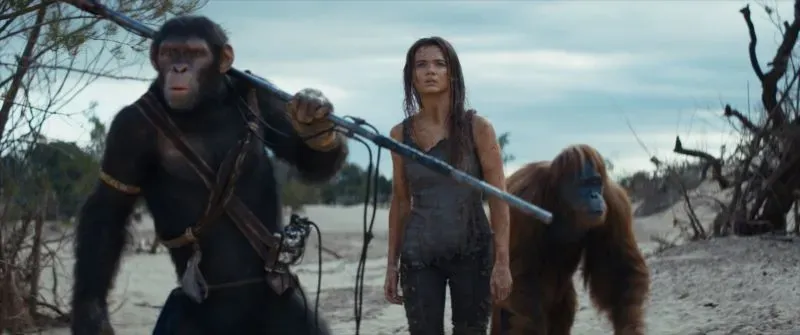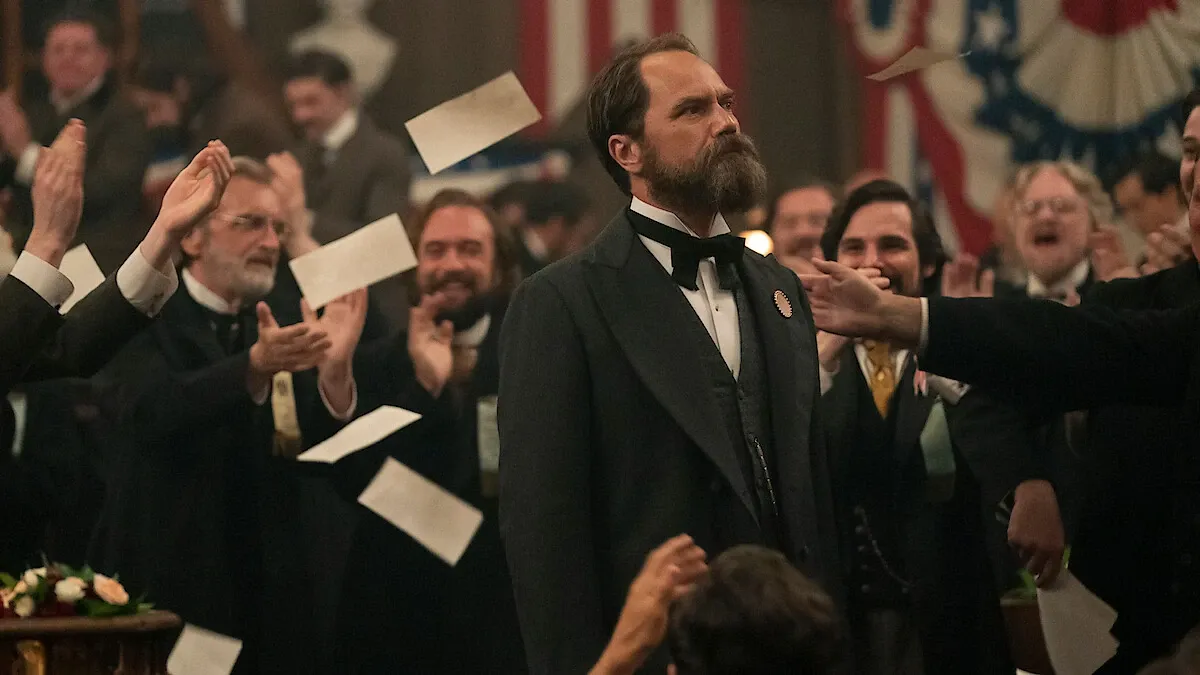Seven years after the conclusion of War for the Planet of the Apes and thirteen since the reboot trilogy began, we have Kingdom of the Planet of the Apes. A first in a new trilogy that also serves as a bridge between the reboots and the original 1960s Planet of the Apes series. Already, it feels like we should be taking notes.
Luckily, Kingdom of the Planet of the Apes is not the dour homework session I feared. While it struggles with the weight of starting yet another lucrative IP for its parent company, Kingdom, for the most part, is a thrilling standalone adventure story that doesn’t require any prior knowledge of the series. Fans will recognize Easter eggs peppered throughout, and those that took the journey with Caesar in the reboot trilogy will find the lore expanded upon beautifully. But none of that is a requirement to enjoy what is ostensibly an expertly crafted film that’s full of wonder and heart.
Set generations after War for the Planet of the Apes, Kingdom begins in the ruins of our lost world, where apes have formed tribes, clans, and, yes, kingdoms. Our hero is the young Noah, who lives among a secluded tribe known for their skills with training eagles. When we first meet him, he’s hunting for an egg that will one day hatch to the eagle that he will bond with. The pace is unhurried and the world feels textured and rich. Director Wes Ball proves a great match for the material, as he relishes in the opportunity to just enjoy the ride, instead of stuffing it full of spectacle for the sake of spectacle.
The idyllic existence comes to an abrupt halt when a legion of warring apes attack Noah’s settlement. They swear allegiance to the new Caesar, a vicious and charismatic ape played deliciously by Kevin Durand. Over the years, Caesar’s plea for sanity and peace has twisted into a call for imperialism. In a standout moment, Durand’s warlord delivers a chilling monologue that shows how fascism festers throughout the ages.
Left alone and wounded, Noah sets out on a quest to save his people from slavery. Only to discover his small valley is part of a much larger, more complex world than he could have imagined.
Kingdom scores its first major win in its casting. Noah, played by Owen Teague, is a hugely likeable and charming lead character, one who picks up the mantle left by Caesar without any hesitation. If this is who the new trilogy will be built around, the series is in safe hands. Similarly fantastic is Peter Macon as Rakka, a follower of Caesar’s philosophy, and one who believes man and ape could, in an ideal world, live together.
Series newcomer Freya Allan proves a magnetic presence in a part that’s mostly silent. When we meet Nova, as Rakka names the outsider, she’s practically feral. It’s a smart reversal of where the reboot series began, and gives the cast ample opportunities to play with the newfound dynamics. The trios journey is easily the best part of the film, and should have been the only focus.
On top of that, this is a sublime feast for the eyes and ears. Every frame of Kingdom looks vivid and real, and it’s impossible to say where the actor ends, and the effect begins. Ball allows us to soak up the detail at every turn. Even the action is shot in long and wide takes. As a result, Kingdom is one of the best looking films of the year.
But this is a new beginning, and those require exposition and groundwork for at least two more films. As a result, the final act grinds to an odd halt to deliver a setup that it doesn’t need. Almost as if the studio is concerned that a 70-year-old franchise, with already two separate successful trilogies to its name, wouldn’t be enough to draw audiences in.
Whatever the reason, the conclusion is too hurried and too much of a promise of something we didn’t request. Which is a shame, as everything leading up to it is brilliant. The script, written by Josh Friedman, delivers exactly what you’d expect out of the famously political and anti-war series. It smartly revives the themes of jingoism, war, and distrust, and updates the subtext to work in present day. The fact that much of it doesn’t need updating is a dire reminder of how slow humans (and, in this case, apes) are to change.













